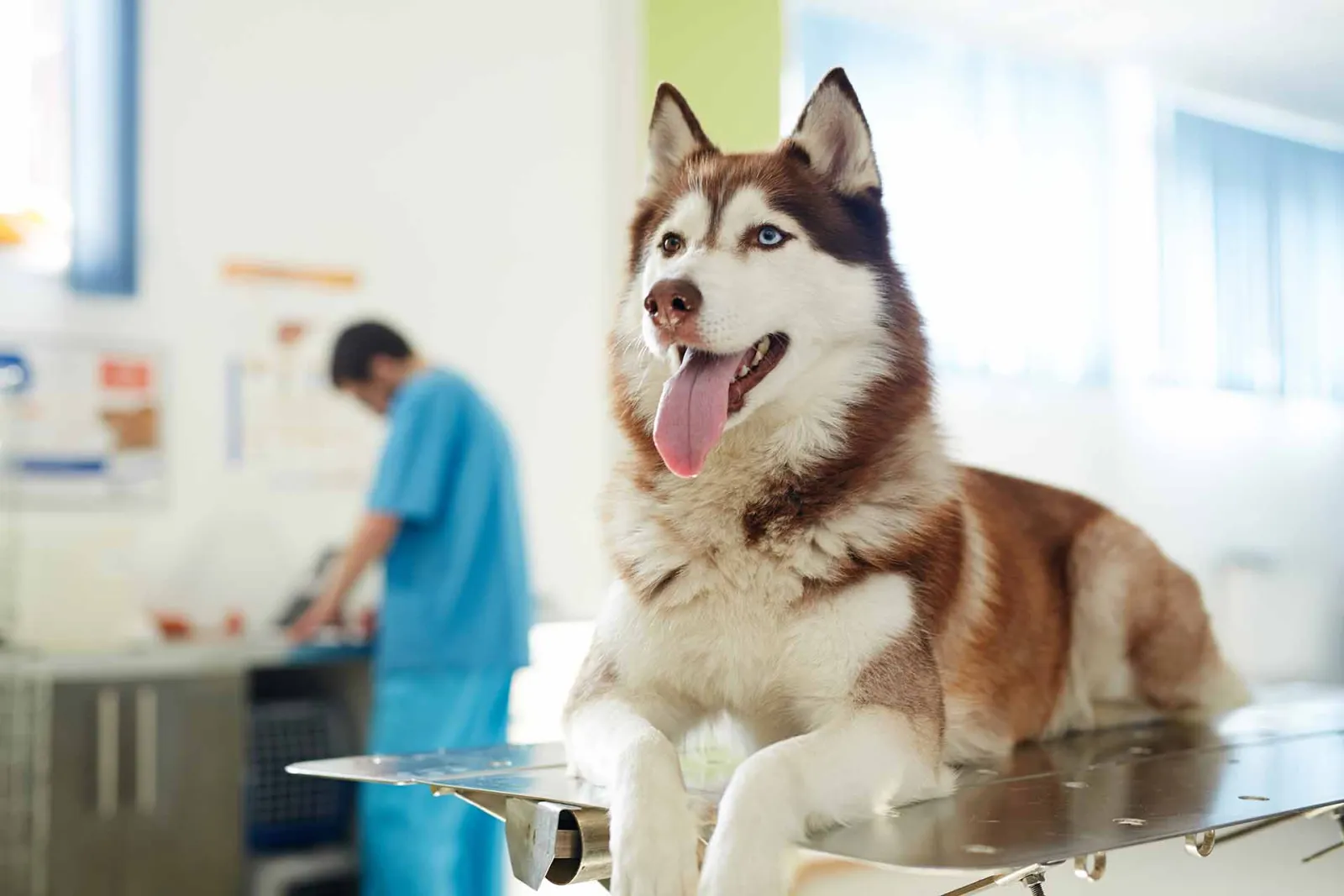What Is Acute Gastroenteritis in Dogs?
Understanding Acute Gastroenteritis in Dogs
- Overview of acute gastroenteritis in dogs, its causes, and symptoms such as vomiting and regurgitation.
- The role of dietary indiscretion and food protein intolerance in triggering gastroenteritis.
- Treatment options and prevention strategies for dog owners.

Acute gastroenteritis in dogs is a common condition that affects the stomach and intestines, causing significant discomfort for your pet. This condition often leads to symptoms like vomiting and regurgitation, diarrhea, abdominal pain, and lethargy. Gastroenteritis is usually acute, meaning it comes on suddenly and lasts for a short period. It's one of the most frequent reasons dog owners bring their pets to the vet, especially when the symptoms are severe.
Although it is not typically life-threatening, acute gastroenteritis can quickly lead to dehydration, making early recognition and treatment essential. The most common causes include dietary indiscretion, where dogs eat something they shouldn't, and food protein intolerance, which can lead to digestive issues. Understanding the root cause of gastroenteritis is crucial in preventing it from happening again. Let's explore the symptoms, causes, and treatments to help dog owners keep their pets healthy and safe.
Signs and Symptoms of Gastroenteritis in Dogs)
Recognizing the signs and symptoms of gastroenteritis is the first step toward getting your dog the care they need. The most noticeable symptoms include vomiting and regurgitation, diarrhea, a loss of appetite, and lethargy. Vomiting is often sudden and can occur multiple times throughout the day, leading to concerns about dehydration. While many pet owners confuse vomiting with regurgitation, it's important to note that vomiting involves forceful expulsion of stomach contents, whereas regurgitation tends to be passive and happens shortly after eating.
Diarrhea is another common symptom of gastroenteritis and can range from mild to severe, depending on the underlying cause. Pet owners may notice their dog becoming more lethargic and unwilling to eat or drink due to discomfort. In more serious cases, dogs can experience significant dehydration, which requires immediate veterinary attention.
Monitoring your dog's symptoms is key to catching gastroenteritis early. If your dog is showing multiple symptoms, especially persistent vomiting and regurgitation or diarrhea, a trip to the vet is recommended. With proper care and early intervention, gastroenteritis can be managed and resolved quickly.
Common Causes: Dietary Indiscretion and Food Protein Intolerance
Two of the most frequent causes of acute gastroenteritis in dogs are dietary indiscretion and food protein intolerance. Dietary indiscretion refers to a dog eating something they shouldn't, such as spoiled food, garbage, or non-food items like toys or socks. This behavior often leads to inflammation in the gastrointestinal tract, resulting in vomiting and regurgitation, diarrhea, and discomfort. Dogs are naturally curious, and many enjoy scavenging, but this behavior can quickly lead to serious digestive issues.
Food protein intolerance is another common trigger of gastroenteritis. This occurs when a dog's digestive system reacts negatively to certain proteins in their diet. Unlike a food allergy, which involves an immune response, intolerance is a digestive issue where the body cannot properly process specific proteins. Symptoms often include chronic diarrhea, vomiting, and weight loss. Pet owners may find it challenging to identify the specific protein causing the issue without the help of a veterinarian.
To prevent dietary indiscretion, dog owners should be mindful of what their pets have access to. Keep trash out of reach, avoid feeding table scraps, and ensure that harmful objects are safely stored away. For dogs with food protein intolerance, working with a vet to develop a tailored diet plan is essential. By identifying problematic ingredients and switching to hypoallergenic or limited-ingredient diets, pet owners can help manage their dog's symptoms and improve their quality of life.
Diagnosis and Treatment
Diagnosing acute gastroenteritis in dogs often begins with a thorough physical examination and a review of your dog's symptoms, such as vomiting and regurgitation, diarrhea, and lethargy. Your veterinarian may perform blood tests, fecal exams, or imaging studies like X-rays or ultrasounds to rule out other causes and confirm gastroenteritis. In some cases, they may also check for parasites, bacterial infections, or blockages in the digestive tract.
Treatment usually focuses on alleviating symptoms and preventing dehydration. Fluid therapy is a common treatment, especially if your dog is experiencing severe vomiting or diarrhea. Anti-nausea medications may also be prescribed to help control vomiting, while antibiotics could be used if a bacterial infection is suspected. In many cases, vets recommend a temporary diet change to a bland diet that is easy on the stomach, such as boiled chicken and rice.
With prompt care, most dogs recover quickly from acute gastroenteritis. However, ongoing monitoring and dietary adjustments may be necessary to prevent future episodes.
Prevention and Long-term Management
Preventing acute gastroenteritis in dogs starts with addressing the common causes like dietary indiscretion and food protein intolerance. Dog owners should avoid giving table scraps, ensure proper food storage, and keep garbage out of reach. Consistent, balanced meals that are suited to your dog's specific dietary needs are crucial. For dogs with food protein intolerance, a veterinarian-recommended diet can help avoid flare-ups.
Regular veterinary check-ups are essential, especially for dogs prone to gastrointestinal issues. Monitoring their health and adjusting their diet as needed will reduce the risk of future episodes, keeping your pet healthy and comfortable long-term.
Recognizing the signs and symptoms of gastroenteritis in your dog and understanding the roles of dietary indiscretion and food protein intolerance can help prevent or treat this condition. If your dog is experiencing symptoms, schedule an appointment with Forever Vets to get them the care they need.


